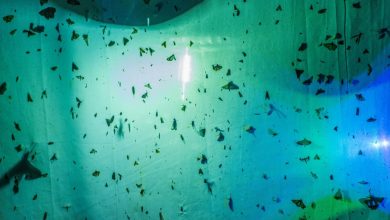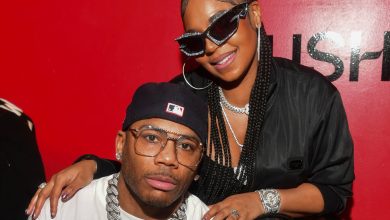The Lesbian Writer and Her Flamboyant Gay Husband

Peter and I hitched our wagons young. Early 20s.
He was wildly handsome, gay, with soulful brown eyes and a head full of loose, unruly curls. Raised by an African American woman and a white preacher man, Peter spent his childhood steeped in the evangelical ministry. He was as terrified of his father’s sermons as he was soothed by his mother’s inclination to administer to the more human aspects of the congregation they both led.
The night I met Peter, he and I fell all the way in love. Kismet, you could say. He made me laugh with his very first words. It was my first time at the Nuyorican Poets Cafe, the premier debut joint for every performance poet trying to get onto the New York City poetry scene. I read my first piece on the open mic after the slam. Peter was among the first admirers to make his way through the applauding crowd to tell me I had simultaneously embodied the fury of his father and the vulnerability of his mother — and, as such, I was destined to be one of his true loves.
“Only one of?” I asked.
“Fate isn’t fixed,” he said, “The gods have to leave room for surprises!”
By the time we met in the fall of 1997, Peter’s parents were long divorced. His father had left the church. And Peter was already exploring other truths to believe in. Poetry was his new religion. His poems were long, lyrical and lovingly painted with the impossibly beautiful brushstrokes of utopia.
He lived his life with the same energy. He believed in the goodness of people. Once, in the middle of winter in Washington Square Park, I watched him unbutton his coat and drape it across the shoulders of a drunk who had just called him a homophobic slur.
I was an ex-Christian and newly out lesbian fleeing the violent homophobia of the late 1990s in Jamaica, still wearing the fury of being attacked by a dozen boys and sexually assaulted in Kingston. I was ashamed and angry that it defined my final year of university. That’s why I moved to New York City on a tourist visa. I needed somewhere safe to call home.
But I felt at sea in this new country. I had a few aunts and uncles in New York, but before any of this I had absolutely no relationship with my biological family. My parents had abandoned me — my mother at birth, and my father hadn’t even shown up. And now that I had announced that I was a lesbian, that already distant extended family wanted less to do with me.
I was in New York in search of safety. Freedom. And room to explore my budding lesbian identity. I was seeking a tribe to which I could unequivocally belong. And the performance poetry slam scene was a mixture of every kind of misfit. Peter and I fit right in.
In no time, it felt as if we had known each other our whole lives. We shared everything: stories, poems, disappointments, hopes. We spent most evenings together. I’d meet him after work and go to whichever cafe was holding a slam competition that night.
He knew everything about me: how broke I was, who stole my favorite vibrator, the ex-cop who hit me — how I kept going back to her. Every time. One night, after a particularly bad fight with my abusive partner, my roommate cornered me and told me she was going to raise the rent unless I had sex with her. My tourist visa was almost expired. I had no money except what I won at the slams — and that was barely enough to pay for the couch, ramen noodles and a MetroCard. I had no work permit, so I couldn’t get a job. I couldn’t apply for any services. Without papers I couldn’t even get into a shelter.
I told Peter I was going to give up on this crazy dream of freedom in New York to go back to Jamaica. He was quiet while I explained what it meant to be undocumented; I went on about green cards and citizenship and visas and immigration authorities. When I was done talking, he asked me to marry him. When I pushed back, saying such a marriage was illegal and that it might land us in trouble with the law, he said the law was wrong.
“You love me, right?”
I nodded.
“Well, I love you. You love me. I want children. You want children, right?”
“Right …”
“Well, that is what people do when they love each other and they want to have children together. They get married. And that makes them a family. They can’t have it both ways. And love is love, right?”
His argument was sound. If the rules were fair, I would have been able to marry a woman, get citizenship and start a family with her. As it stood in the U.S., that wasn’t allowed. But Peter and I were well within our right to claim the perks of being a couple. We were already partners. He was already my family.
We were married at City Hall. Peter’s lover, who was to be our witness, didn’t even show up for the wedding. We had to ask a beautiful man in cowboy boots and a sequined vest to stand in for him.
After our very giggly “I dos,” Peter invited me to Thanksgiving dinner with his family. Before the month was out, I moved in with him and his amazing mother, Carole Linda, in the beautiful old house, the one that was once his parents’ church, two blocks from the beach in Far Rockaway.
We spent three magical years living together. No one understood the quirky, kooky couple who arrived together, left together, but flirted with everyone in between. We had so much fun together. We were the perfect couple. We knew we’d be the perfect parents. But we were a modern couple. We wanted to be more intentional, more deliberate about our choices than our parents had been. We had more living to do before we took on the responsibilities of children. We didn’t have money, but we had lots of time.
We were committed to living first.
But at 29 Peter was diagnosed with cancer. Stage 4.
He was diagnosed in May. He died on Dec. 16. At 11:30. Half-hour before he would turn 30.
I was so furious at him dying, I couldn’t cry.
It felt as if all my dreams of family died with him; a partner, children, my willing comrade in the radical redefining of the modern family, modern love.
His mother was better at making peace with the heavens over the loss of her firstborn. I was surprised at her ability to remain connected to me. She stayed close, calling, sending Christmas cards, checking in, even as I remained distant, angry, unsure about deserving the magic of the family Peter had so tragically, suddenly, left behind.
I grudgingly remained connected to his younger brother, CJ, who reminded me so much of Peter. Except he wasn’t gay, or a poet. He grew up to be a fine filmmaker and the only straight man in the L.G.B.T.Q. alliance in college. We often called each other to reminisce about Peter, to recount the sorcery of him, to bask in the shared memory of his magic.
Later, when I became frantic with the desire to start a family — chasing gay men at house parties, begging sperm from strangers on planes — I broke down and wept for what felt like the too-early death of my husband. I didn’t want to be the strange young widow hosting lesbian parties in Crown Heights. I wanted to be the badass lesbian writer, with the flamboyant gay husband, raising four children in a rambling old house that used to be a church, two blocks from the beach in Far Rockaway.
In one conversation with CJ, he interrupted to ask if there was a way he could stand in for Peter, by giving me his sperm. A year later, my daughter, Zuri, the most astounding miracle, born a decade after Peter’s death, refers to Peter as her “almost dad.” Carole Linda is still my mother-in-law and my kid’s actual, biological grandmother.
Zuri’s “Baba,” CJ, got married last August. Zuri almost passed out from the joy of being asked to be the ring bearer at the wedding. We all traveled from multiple cities to watch them speak the vows. His brothers, their wives, Peter’s grandmother, his father, me, my non-monogamous partner and a beautiful cohort of ordinary folks, misfits, artists, preachers, writers, activists, gay, straight, nonbinary. I looked around the room, thinking if we had had the choice, this is what Peter’s and my wedding would have looked like. Peter would have reveled in it.
Some days I still hear Peter’s voice inside my head, rustling in the fall wind, booming in the rush of traffic on the West Side Highway. He’s always whispering, screaming, saying the same thing, “Fate isn’t fixed, Staceyann. There is always some room for the gods to surprise us.”
Staceyann Chin is a poet and the author of “Crossfire,” “The Other Side of Paradise” and “Motherstruck.”
This essay is part of a collaborative project with the Black History, Continued team. Modern Love can be reached at [email protected].
To find previous Modern Love essays, Tiny Love Stories and podcast episodes, visit our archive.
Want more from Modern Love? Watch the TV series; sign up for the newsletter; or listen to the podcast on iTunes, Spotify or Google Play. We also have swag at the NYT Store and two books, “Modern Love: True Stories of Love, Loss, and Redemption” and “Tiny Love Stories: True Tales of Love in 100 Words or Less.”



